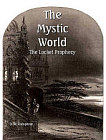
Unsolved Riddle of Social Justice

Description
of Social Justice
by
Stephen Leacock
THESE are troubled times. As the echoes of the war die away the sound of a new conflict rises on our ears. All the world is filled with industrial unrest. Strike follows upon strike. A world that has known five years of fighting has lost its taste for the honest drudgery of work. Cincinnatus will not back to his plow, or, at the best, stands sullenly between his plow-handles arguing for a higher wage.
Excerpt:

The wheels of industry are threatening to stop. The laborer will not work because the pay is too low and the hours are too long. The producer cannot employ him because the wage is too high, and the hours are too short. If the high wage is paid and the short hours are granted, then the price of the thing made, so it seems, rises higher still. Even the high wages will not buy it. The process apparently moves in a circle with no cessation to it. The increased wages seem only to aggravate the increasing prices. Wages and prices, rising together, call perpetually for more money, or at least more tokens and symbols, more paper credit in the form of checks and deposits, with a value that is no longer based on the rock-bottom of redemption into hard coin, but that floats upon the mere atmosphere of expectation.
But the sheer quantity of the inflated currency and false money forces prices higher still. The familiar landmarks of wages, salaries and prices are being obliterated. The "scrap of paper" with which the war began stays with us as its legacy. It lies upon the industrial landscape like snow, covering up, as best it may, the bare poverty of a world desolated by war.
Under such circumstances national finance seems turned into a delirium. Billions are voted where once a few poor millions were thought extravagant. The war debts of the Allied Nations, not yet fully computed, will run from twenty-five to forty billion dollars apiece. But the debts of the governments appear on the other side of the ledger as the assets of the citizens. What is the meaning of it? Is it wealth or is it poverty? The world seems filled with money and short of goods, while even in this very scarcity a new luxury has broken out. The capitalist rides in his ten thousand dollar motor car.
The seven-dollar-a-day artisan plays merrily on his gramophone in the broad daylight of his afternoon that is saved, like all else, by being "borrowed" from the morning. He calls the capitalist a "profiteer." The capitalist retorts with calling him a "Bolshevik."
Worse portents appear. Over the rim of the Russian horizon are seen the fierce eyes and the unshorn face of the real and undoubted Bolshevik, waving his red flag. Vast areas of what was a fertile populated world are overwhelmed in chaos.
Over Russia there lies a great darkness, spreading ominously westward into Central Europe. The criminal sits among his corpses. He feeds upon the wreck of a civilization that was.
The infection spreads. All over the world the just claims of organized labor are intermingled with the underground conspiracy of social revolution. The public mind is confused. Something approaching to a social panic appears. To some minds the demand for law and order overwhelms all other thoughts. To others the fierce desire for social justice obliterates all fear of a general catastrophe. They push nearer and nearer to the brink of the abyss. The warning cry of "back" is challenged by the eager shout of "forward!" The older methods of social progress are abandoned as too slow. The older weapons of social defense are thrown aside as too blunt.
Parliamentary discussion is powerless. It limps in the wake of the popular movement. The "state", as we knew it, threatens to dissolve into labor unions, conventions, boards of conciliation, and conferences. Society shaken to its base, hurls itself into the industrial suicide of the general strike, refusing to feed itself, denying its own wants.
This is a time such as there never was before. It represents a vast social transformation in which there is at stake, and may be lost, all that has been gained in the slow centuries of material progress and in which there may be achieved some part of all that has been dreamed in the age-long passion for social justice.
For the time being, the constituted governments of the world survive as best they may and accomplish such things as they can, planless, or planning at best only for the day. Sufficient, and more than sufficient, for the day is the evil thereof.
Never then was there a moment in which there was greater need for sane and serious thought. It is necessary to consider from the ground up the social organization in which we live and the means whereby it may be altered and expanded to meet the needs of the time to come. We must do this or perish. If we do not mend the machine, there are forces moving in the world that will break it. The blind Samson of labor will seize upon the pillars of society and bring them down in a common destruction.
I.-The Troubled Outlook of the Present Hour
II.-Life, Liberty and the Pursuit of Happiness
III.-The Failures and Fallacies of Natural Liberty
IV.-Work and Wages
V.-The Land of Dreams: The Utopia of the Socialist
VI.-How Mr. Bellamy Looked Backward
VII.-What Is Possible and What Is Not
Softcover, 5¼" x 8¼", 110+ pages
Perfect-Bound















